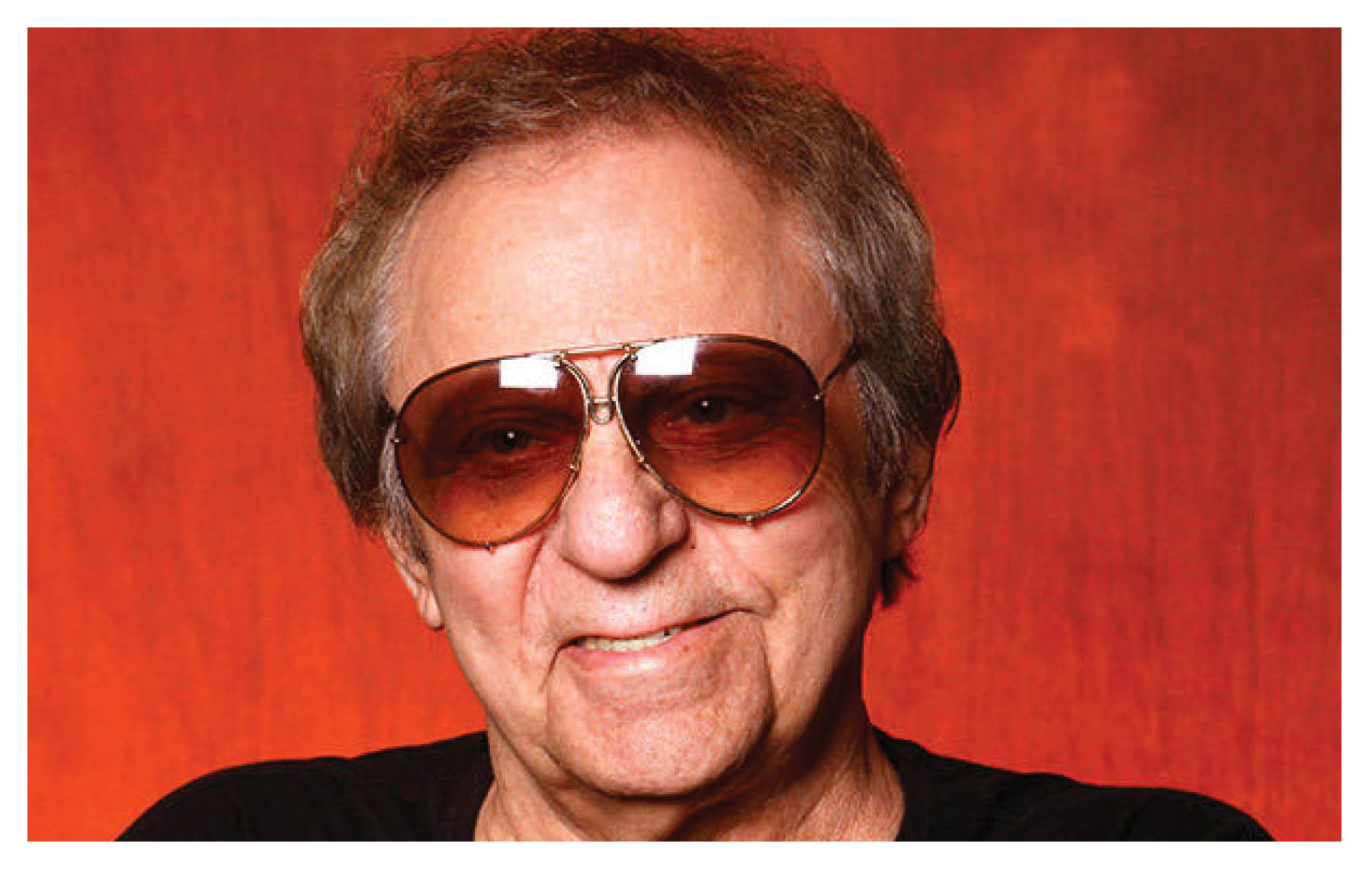
You might not know the name Hal Blaine, but you’re probably familiar with his work. Blaine, who was Jewish and died March 11 at the age of 90, was the drummer for the fabled Wrecking Crew, a collection of first-call Los Angeles session musicians who played on some of the biggest hits of the 1960s and ’70s.
He is credited with playing on more than 35,000 songs, including more than 150 top-10 hits, of which 40 reached No. 1. That list includes the Beach Boys’ “I Get Around” and “Good Vibrations”; Simon and Garfunkel’s “Mrs. Robinson”; the Byrds’ “Mr. Tambourine Man”; and Frank and Nancy Sinatra’s “Somethin’ Stupid.”
Blaine would be assured a spot in music history if only for four notes — the “Boom Ba-boom POW” that kicks off the Ronettes’ 1963 classic “Be My Baby.” According to Blaine, that famous lick resulted from an accident during a rehearsal, when he dropped a stick and added an extra beat. “One of the things you learn is that when you make a mistake, if you do it every four bars, it becomes part of the song,” he once told the Percussive Arts Society. It’s a mistake that’s been imitated by drummers for more than 50 years.
Hal Blaine was born Harold Simon Belsky on Feb. 5, 1929, in Holyoke, Mass., the son of Russian Jewish immigrants Meyer and Rose Belsky. In 1936, the family moved to Hartford, Conn., where Blaine became interested in the drums after watching the fife and drum corps at the Roman Catholic school across the street from his Hebrew school. He was soon drumming with that band.
When he was 16, Blaine dropped out of high school to join the Army, where he was assigned to the band. He was so proficient that Pfc. Blaine was soon drumming in the officers band. After his discharge in 1948, he moved to Chicago and began studying with Roy C. Knapp, who was also Gene Krupa’s teacher. To supplement his income, he started playing club dates around town. He moved back to California, where he landed jobs in jazz bands backing singers such as Tommy Sands, and occasionally filled the drum seat in the Count Basie Orchestra.
“May he rest forever on 2 and 4.” — Blaine family
But it was in the studio where Blaine found his true calling. A quick study who could sight-read music charts, he set himself apart from his jazz and big band contemporaries in his acceptance of pop and rock music. He became part of the group of musicians who made up record producer Phil Spector’s “Wall of Sound.” Blaine claimed to have first called the group the “Wrecking Crew” because the older, more conservative musicians believed the younger, informally dressed players — who included Glen Campbell and Tommy Tedesco on guitar, Carol Kaye on bass, and Leon Russell and Larry Knechtel on keyboards — would “wreck the business.” Blaine was especially in demand because of his versatility and his ability play a song perfectly from the first take.
Blaine’s personality also might have been a factor in his successful career, Michael Ackerman, an entertainment lawyer and drummer told the Journal. He met Blaine in 1992, when they bonded over “drumming and bad divorces,” and Blaine “was funny and such great company,” Ackerman said.
By the mid ’70s, session work was dying out, and Blaine found work on commercials and TV, where he played on theme songs for shows such as “The Brady Bunch” and “Three’s Company.” Married and divorced five times, by the 1980s he was forced to make a living as a security guard. Danny Tedesco’s 2014 documentary on the Wrecking Crew helped bring some recognition, and Blaine became a regular at trade shows.
Declining health led him to curtail his public appearances, although he did make an appearance at a concert in honor of his 90th birthday. As he explained to Ackerman in one of his all-caps emails, “I HATE TO DISAPPOINT FOLKS WHO WANT A MEET AND GREET BUT I SEEM TO HAVE LOST MY YOUTHFUL STAMINA… GO HOLLER AT FATHER TIME!!” Even so, he ended the message on a positive note: “KEEP ON SMILING !!!”
He is survived by his daughter, Michelle Blaine, and seven grandchildren.
Announcing the death on his Facebook page, his family wrote, in reference to the common four beats per measure: “May he rest forever on 2 and 4.”























 More news and opinions than at a Shabbat dinner, right in your inbox.
More news and opinions than at a Shabbat dinner, right in your inbox.